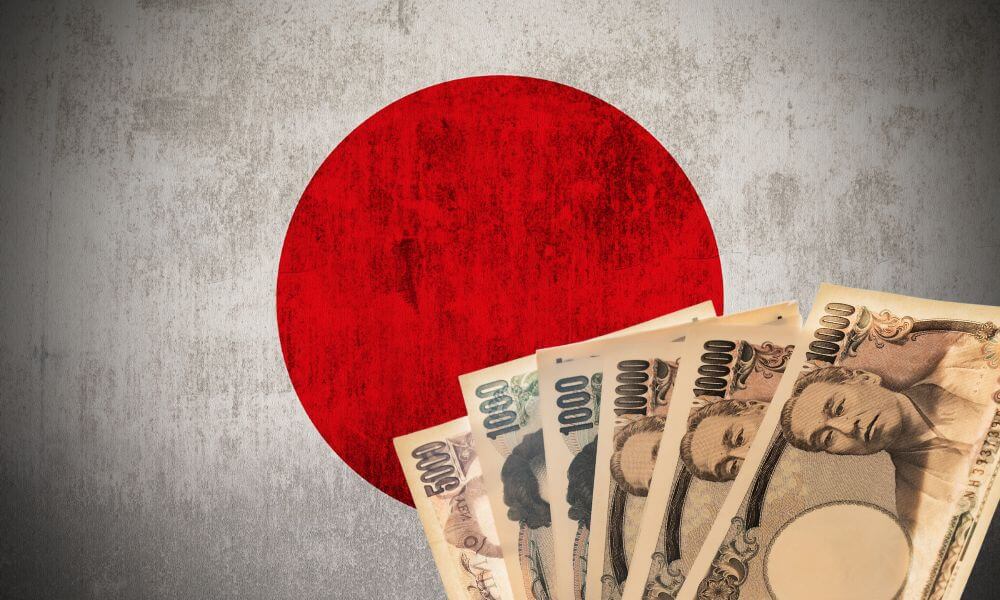The currency of Japan is the yen. This is the third most traded currency in the world after the US dollar and the euro and is widely used as a reserve currency. It was first introduced in1871 and replaced the Tokugawa coinage and hansatsu paper currency. Since then it has been Japan’s official currency.
Yen is one of the most important currencies in the world today, and is the backbone of international trade for many parts of the globe.
Japan has emerged as one of the world’s strongest economies and one of the main players on the international stage.
Let’s find out more.

What is the currency of Japan?
The currency of Japan is the Japanese yen.
The Yen is one of the most traded currencies in the world and is only exceeded in volume by the US dollar and the euro.
It is one of the most widely used reserve currencies in the world.
In 1871, the New Currency Act introduced the modern monetary system of Japan and at that time one yen was based on the Gold Standard, being equivalent to 1.5 grams of gold.
The Gold Standard was widely used at this time across the world and meant that any token you had from the bank would be backed up by the equivalent amount of gold.
Before the advent of the yen, the currency in Japan was made up of the Tokugawa coinage and the hansatsu paper notes.
These were issed by the feudal han shogunate, but in 1868 the emperor assumed nominal absolute power and the country was properly unified again.
In 1882, the Bank of Japan was founded and was granted the monopoly on money supply.
The value of the yen has fluctuated a great deal over the decades.
It lost most of its value after the Second World War, and the exchange rate was fixed to the US dollar to stabilize the economy.
This system was later abandoned in 1971 and underwent a lot of fluctuation over the course of the next decade.
The word yen derives from Japanese meaning “round”, coming from the Chinese yuan.
The Chinese had traded silver in denominations called sycees, and they had been called silver rounds after the arrival of Spanish and Mexican silver coins.
There have been many series of coins and bank notes over the years, depicting many Japanese figures and artwork from throughout history.
What, then, is the best currency to take to Japan when travelling?
What is the best currency to take to Japan?
Because the yen is so widely traded, you shouldn’t have much difficulty getting hold of yen before you leave.
Most international currency exchanges will offer rates on Japanese yen depending on where you are in the world, and you will certainly need to take yen into Japan to pay for goods and services.
If you’re not able to get hold of yen before you leave, then your best option is going to be one of the other big reserve currencies, like the US dollar, euros or pounds sterling.
If you cannot get yen, then bring some of these to convert locally.
At the point that you are converting currency twice, though, you may simply be better off bringing a bank card and using a local ATM to withdraw money.
Most ATMs will accept your bank card and exchange the money for a small fee, which wouldn’t be much more than what you would pay to a currency exchange—especially if you are doing so twice.
Why does Japan have such a large economy?
The massive economic growth of Japan, particularly since WWII, has been driven by a number of different elements.
They rapidly developed manufacturing and emphasis shifted from light to heavy industry, with a much higher degree of processing.
Progress was rapid in many areas, like quantitative growth, quality, variety, and most of all efficiency.
The Japanese today are able to keep up with changes in international trading in a way that other nations cannot, and they were able to provide goods in mass quantities that were at the highest demand.
The work-force is overall very well educated and industrious, and they have a large, affluent population.
All of this combines to make Japan one of the world’s largest economies and they have been growing for well over half a century.
Is Japan expensive?
Japan, it’s worth remembering, is a very large place—there’s a great deal of variation in the expense of travelling to any given place in Japan.
Tokyo, for instance, is naturally going to be quite expensive as one of the biggest capital cities in the world.
But with strategy, you can have a reasonable trip to Japan and many of the major sites in the country are free to visit.
In general, though, Japan is an expensive country, and going on a budget will require careful planning—but ultimately it is not the most expensive country in the world by any stretch of the imagination.
Japan, then, is one of the world’s economic powerhouses, and the yen reflects that.
Though some believe it is facing stagnation at best and a considerable downturn at worse in the coming years, for the time being it is plainly strong and stable.
You will have no trouble getting access to yen for good rates if you are travelling to the country, so it makes Japan a great location for you to visit.

